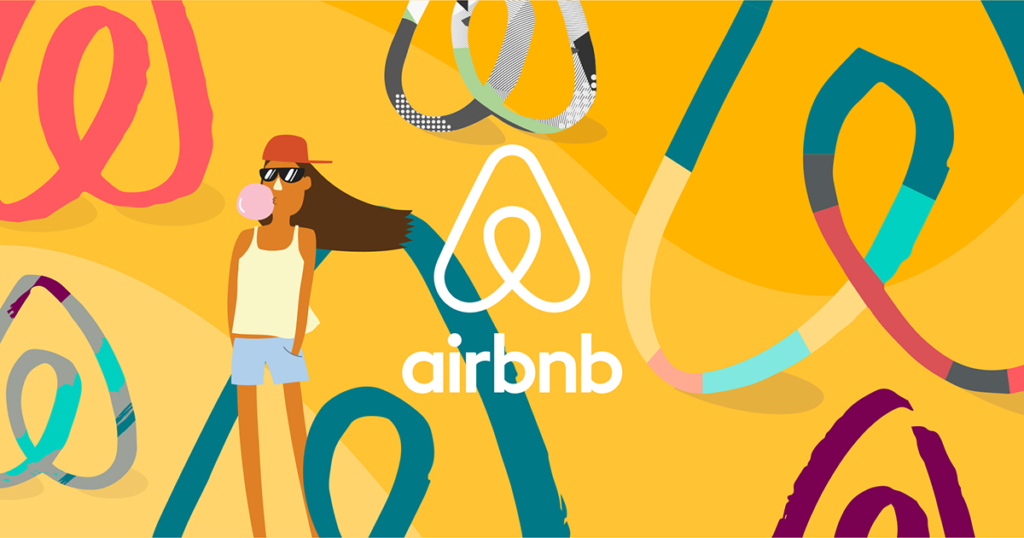[ad_1]
Consider this: Airbnb, the world’s largest accommodation provider, owns no property. The company, which allows users to rent out spare rooms and vacant homes, boasts a whopping 2 million listings in 192 countries. With a valuation of $25 billion, Airbnb surpasses the Intercontinental Hotels Group as the world’s largest hospitality brand by a landslide. And their growth, which is based off of shared inventory, is only accelerating from here.
What’s even more interesting is that Airbnb is so successful despite a daunting obstacle in their business model — they must convince users to entrust complete strangers with their most valuable possessions.
In this post, we’ll explore how Airbnb overcame this obstacle by building trust around their brand. We’ll also reveal ways to you can leverage the opportunities the sharing economy has exposed to build trust within your own business.

The Current State of Trust
First off, it’s important to acknowledge the growing market for peer-to-peer businesses, and how this lends itself to a more trusting population. This article, brilliantly titled “The decline of serial killers and rise of the sharing economy,” declares that the internet has played a major role in increasing trust between strangers. In essence, mostly everyone has a virtual identity thanks to networks like Facebook and Google that makes it difficult to leave your history behind.
In addition, the trend of people returning to live in cities versus the suburbs has enabled a boom in peer-to-peer businesses that serve these metropolitan centers. Brad Burnham, tech investor at Union Square Ventures, states, “Once upon a time we trusted a hotel chain like Hilton. The brand made people feel safe spending the night there. Increasingly, we have less confidence in these established hierarchies. We have come to trust in the network, in the web of connections between people.”
Evidently, the rise of both the internet and the sharing economy has forced us to rewire our relationships with one another. As we can see more of people’s identities online, our fear of strangers has declined. We are happier to engage with those we don’t know, and “strangers” are seen more as “peers” as this newfound sense of trust emerges.
Airbnb: A Case Study
Airbnb capitalized big on this cultural breakthrough by employing a number of tactics to build upon this heightened sense of trust. This process begins as soon as someone creates a new profile. Airbnb encourages users to upload profile photos that clearly show their faces, and to write detailed profile descriptions that identify themselves on a personal level. Additionally, users can create their own Airbnb symbols, and upload a 30-second profile video to further illustrate who they are to the Airbnb community.

In 2013, Airbnb added Verified ID to its platform, mandating that users verify their identity through government documents, social accounts, and contact information before a guest can book their place. Although these requirements vary depending on the location of the user and other circumstances, the process nonetheless facilitates transparency, and reduces the fear that can occur when strangers do business together.
Internally, there’s a lot going on behind-the-scenes to ensure user safety. Just take a peek at this article in Wired that reveals how the team prepares for SXSW, one of the company’s most high-volume events. A trust and safety team led by former government investigators, criminal prosecutors, and the like, embark on a number of precautions — reaching out to guests that are flagged as posing the greatest property-damage risk, scanning the site for potentially illegitimate listings, and traveling to the festival in person to handle any problems that arise.
Airbnb also assigns each reservation a “trust score,” based on the reservation’s details, payment, reviews, and the communication between guest and host. There are a number of red flags (like the words “Western Union” being used in conversation) that can ding a trust score, helping the team keep tabs on untrustworthy bookings.
Lastly, Airbnb cultivates interpersonal connections between their users through Airbnb groups, promoting communication between hosts and guests, post-reservation reviews, and even in-person events. This, along with the other safety precautions mentioned, encourages users to not only trust each other, but to trust in Airbnb’s brand as a whole.

Building Trust Within Your Own Business
So, how can you leverage the opportunities peer-to-peer businesses like Airbnb have created, and build trust within your own brand? We’ve got 3 recommendations for you:
-
Connect like-minded customers. If you’re a B2B business, this might mean inviting all your super-users together in a Slack channel to talk about best practices when using your product. Or, if you’re B2C, this could mean connecting all the millennial influencers in a Facebook group to drum up excitement for your product and potential influencer marketing opportunities. Whatever it is, fostering strong relationships between your customers is a great way to form a tight-knit community.
-
Encourage online reviews. In the past, consumers looked to brands as markers of trust. As technology eroded our fear of strangers and as review platforms like Yelp have grown in popularity, this has completely reversed. Now, consumers dictate how trustworthy a brand is. Established brands should harness this shift by encouraging their customers to review them online.
First, find out where your prospects hang out — Is it Yelp? G2Crowd? Google Maps? Then, get in touch with your best customers who you think will leave you honest, positive reviews. Once you receive those awesome reviews, you can even offer a small reward to thank your reviewers for their time, and to continue strengthening your relationships with them.
- Find ways to share value. A core tenet of the sharing economy is the concept of sharing value in an equitable way between people. Your brand can also foster this shared feeling to cultivate trust and community. For instance, you can ask customers what they think of a design or a new feature on social media before it’s launched. Or, you can create a customer survey where you gather user feedback, and offer a reward for completed surveys. Both of these efforts will show your customers that you value what they have to say, and in that sense, that they have a stake in your company.

As you can see, the current state of technology has changed the way we think about and interact with strangers. It’s allowed businesses like Airbnb to thrive, which in turn, has created major changes in our economic landscape as a whole.
Take advantage of the new opportunities the sharing economy has created. And, take notes on how Airbnb has built a trust within a tricky business. Whether you’re a peer-to-peer business or not, a trustworthy brand with a loyal community should be your ultimate destination.
Source link






